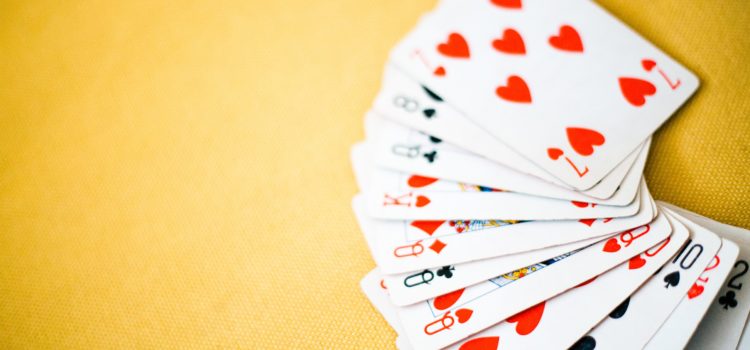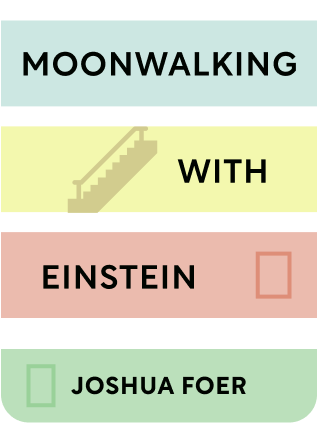

This article is an excerpt from the Shortform summary of "Moonwalking With Einstein" by Joshua Foer. Shortform has the world's best summaries of books you should be reading.
Like this article? Sign up for a free trial here .
What is the US Memory Championship? How do they work, and how does someone win?
In 2006, journalist and author Joshua Foer competed in the US Memory Championship. Foer had spent all his time learning about how memory works and training with top mnemonists. Read about Joshua Foer’s time at the US Memory Championship and how the competition works below.
The 2006 US Memory Championship
Josh had been telling everyone the US Memory Championship was just a whim, or just a journalistic experiment, but he really wanted to win. He worried competitors would come up with new mnemonic techniques, and he was particularly worried about Maurice Stoll. The night before the competition, Josh couldn’t sleep and had strange dreams about his images. The next day, he went to the USA memory memory championships.
When Josh arrived at the competition, the first people he ran into were Ben, who would be spectating, not competing, and Maurice. Both of them told Josh how important it was to get a good sleep before a competition. Josh was rattled, and did not expect to be the US Memory Champion.
Competitors
There were approximately 35 competitors at the US Memory Championship. They competitors included:
- Josh
- Ram Koll
- Maurice Stoll
- Chester Santos
- Erin Hope Luley
- Raemon Matthews’ students
Championship Format
In most memory competitions, everyone’s scores in standardized events are added up at the end of the competition and the highest score wins. In the US Memory championship, there are four qualifying events in the morning, and the top six scorers move to the finals in the afternoon. The finals are TV-friendly, elimination events.
Morning Events
The morning events at the USA Memory Championship are:
Names and faces. Competitors try to memorize the first and last names of people in headshots. They have 15 minutes to memorize and then 15 minutes to write out names next to pictures.
- Josh remembered the names by making up an image that linked the name to the face. For example, he remembered Edward Bedford by imagining him on a bed with Edward Scissorhands, fording a river.
- Josh came in third with 107 names.
- Erin won with 124 names, which was a new US record.
Speed numbers. Competitors have 5 minutes to memorize as many digits as they can.
- Josh, like most Americans, used the Major System.
- Josh came in fifth with 87 digits.
- Maurice won with 148, setting a new US record. Josh suspects he used a PAO system.
Speed cards. Competitors memorize the order of a deck of cards as fast as they can. When finished, they tell the scorekeeper they’re done and then have five minutes to rearrange a new deck into the correct order.
- Josh used a PAO system to place three cards in each locus. He used his parents’ house as his memory palace. (This was an advanced technique—most Americans were placing only one or two cards in each locus.) Josh almost forgot what image he’d placed in the shower but finally remembered it: the king of diamonds (Bill Clinton), four of hearts (copulating with) and seven of clubs (a basketball).
- Josh won the event and beat the US record by memorizing the deck in a minute and 40 seconds.
Poem. Competitors memorize as many lines of an unpublished poem as possible in 15 minutes.
- Anyone who placed in the top three of any of the morning events got a bye, so Josh didn’t compete in this event.
- Erin Luley won and set another US record.
Afternoon Events
The afternoon’s events at the USA Memory Championships are:
Random words. In most memory competitions, the random word event involves competitors memorizing as many words as possible in fifteen minutes. They then have half an hour to write as many as they remember. At the US Memory Championship, however, the event was adjusted to be more TV-friendly. After 15 minutes of memorizing, the six finalists take turns calling out the words. Therefore, the strategy was different—Josh chose to spend more of his time making sure he knew the words, rather than remembering as many as he possibly could.
- Erin was out on the 27th word.
- Paul was out on the 36th word.
- The other four finalists, including Josh, advanced to the next event.
Facts about strangers. In this event, five strangers walk on stage and give ten pieces of information about themselves, such as their phone numbers or pets’ names. The competitors are quizzed on the information, and the first two people to make three mistakes are out.
- Josh purposefully didn’t memorize phone numbers, hoping he wouldn’t get asked about them.
- Maurice was out first.
- Chester was out second.
- Josh and Ram Kolli advanced to the next event.
Memorizing two decks of cards. Competitors must do this in five minutes.
- Josh chose to memorize only one deck of cards because cards were Ram’s weakness and Josh suspected he wouldn’t manage even one deck.
- Ram forgot the fifth card and was out.
- Josh won the event and the championship.
Minor Celebrity Status After the US Memory Championships
Become the USA memory champion turned Josh into a minor celebrity. He talked to Ellen DeGeneres, and talk shows asked him to come on air and memorize a deck of cards.
The US Memory Championships were an interesting point in Josh’s time as a mnemonist. He’d proved that anyone could improve their memory using the techniques he’d studied, and become the USA Memory Champion.

———End of Preview———
Like what you just read? Read the rest of the world's best summary of Joshua Foer's "Moonwalking With Einstein" at Shortform .
Here's what you'll find in our full Moonwalking With Einstein summary :
- The memory techniques that took the author from novice to US memory champion in one year
- The 6 key types of memory we use everyday
- Why memory isn't just genetic, and how you can improve your memory with the right techniques






